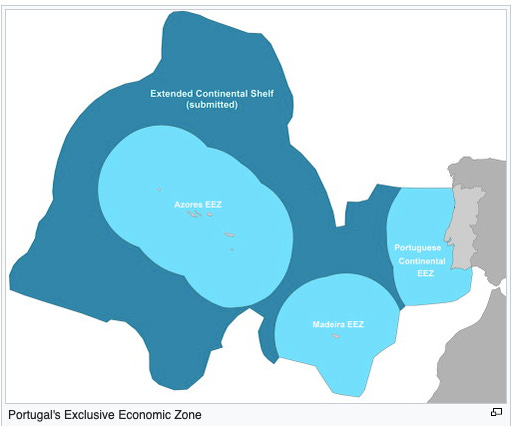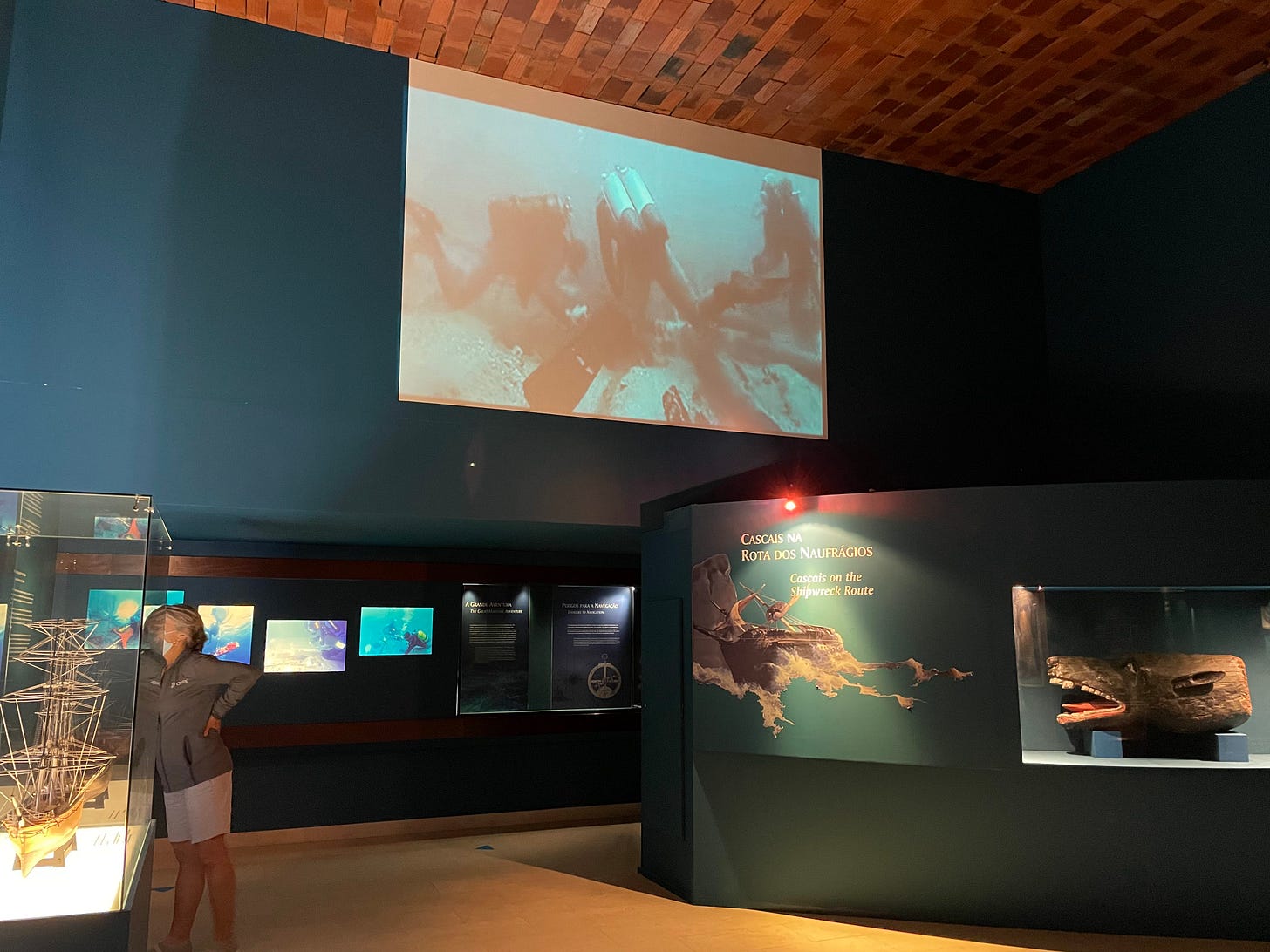Even though we have lived in Cascais since February, we have not yet visited all the museums in town. Last week, we visited the Museu do Mar Rei Dom Carlos (or Museum of the Sea). I learned so much! And I want to share what I learned with you.
Who was Dom Carlos?
The museum sits on the grounds of the former Sporting Club of Cascais, which was founded in 1879 by the then Prince D. Carlos. It was a place where the royal family and Portuguese aristocracy enjoyed their summer holidays playing lawn tennis, cricket and football. In 1992 the Museum of the Sea was opened and named for Dom Carlos because of his role as a pioneer in oceanography in Portugal. The museum offers detailed accounts of this 12 “campaigns”, his work in documenting marine biodiversity, his mollusk collection, and his paintings of the sea.
When I left the museum I wanted to learn more about the monarch, and this is what I learned:
He lived from 1863 to 1908, the son of King Luís and Queen Maria Pia;
We intended to marry the daughter of the German Emperor Frederick III, but instead married the French Princess Amélie of Orléans;
As soon as he took power in 1889, he was faced with a diplomatic challenge known as the 1890 British Ultimatum which forced the Portuguese to retreat from areas of Africa they had claimed (areas now known as Zambia, Zimbabwe and Malawi). He is sometimes referred to as The Diplomat;
He was rather portly, one statue of him in Cascais has trimmed him down a bit, and is also called The Obese;
Finally, he is also referred to as The Martyr as he was assassinated by supporters of a republican government in the Terreiro do Paço when returning from a hunting trip.
Portugal and the Sea
The sea plays a very significant role in Portugal’s past and present. Since arriving we have learned much about the great Portuguese explorers that travelled great distances by sea. But today, it is the Exclusive Economic Zone of Portugal that is of interest:
An exclusive economic zone (EEZ), as prescribed by the 1982 United Nations Convention on the Law of the Sea, is an area of the sea in which a sovereign state has special rights regarding the exploration and use of marine resources, including energy production from water and wind. It stretches from the baseline out to 200 nautical miles (nmi) from the coast of the state in question. It is also referred to as a maritime continental margin and, in colloquial usage, may include the continental shelf… The difference between the territorial sea and the exclusive economic zone is that the first confers full sovereignty over the waters, whereas the second is merely a "sovereign right" which refers to the coastal state's rights below the surface of the sea. — Wikipedia.org
Since Portugal includes the Azores and Madeira, it already has an EEZ area of over 1.7 million square kilometres. But in 2009, Portugal presented a plan to extend its jurisdiction by an additional 2 million square kilometers. This is disputed by Spain on the basis of what Spain calls uninhabitable rocks and what Portugal calls The Savage Islands, a Portuguese Natural Preserve. Stay tuned…
What I Learned
You might wonder why I have highlighted the exclusive economic zone. While I had a vague understanding of this before visiting the museum, its importance to Portugal and frankly the world became more clear during our visit. We took time, to watch an automated video shortly after we entered the museum. Its use of an octopus, named Tentacles, suggested it was aimed at children. But I am not embarrassed to say that I learned so much!
Of particular interest was the part of the film that discussed the ways in which the ocean could generate energy. This was of particular interest to me as we had recently read about yet another oil spill…this time off the California coast. Will we never learn?
I don’t know if it will be underwater turbines, wave power stations, ocean thermal energy conversion or something else. But it seems the possibilities exist for smart people to find a way to use the movement of the seas to generate safe, clean, renewable energy. And wouldn’t it be cool if Portugal could transform the planet and its own economy by figuring this out. Mastering the seas, just as they did hundreds of years ago.
Watch the short video below to better understand just a few of the possibilities. Or click this link to find even more:
Friendly Reminder: I plan to keep the reader survey available for comment all week. If you have not yet provided feedback, please take the time to do so now.







That WOULD BE SO awesome! Portugal seems to be a pioneer in other ways (fiber optic internet, tech startups, sustainable Lisbon) so perhaps ... : )
Fascinating stuff! I had not heard about blue energy before, what great ideas!